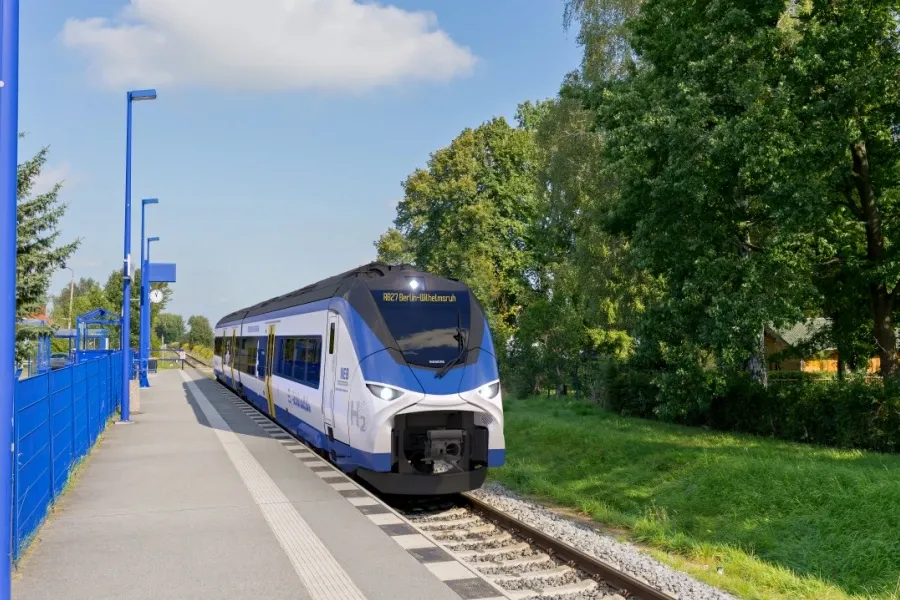CES 2026: Qualcomm Bolsters IoT, Automotive, and Robotics Solutions
Qualcomm unveiled several product updates alongside the launches of new products ahead of the official opening of CES 2026.

Siemens Mobility has been commissioned by Niederbarnimer Eisenbahn (NEB) to deliver seven two-car Mireo Plus H trains for the Heidekrautbahn network (RB27) in the Berlin-Brandenburg metropolitan region. Equipped with a fuel cell drive system and a lithium-ion battery, this second-generation hydrogen train provides completely COâ‚‚ emission-free mobility.
“Today, traveling by train is by far the most climate-friendly way to travel. We are especially proud that our first order for a fleet of hydrogen-powered trains will also enable emission-free rail transport on non-electrified routes,“ said Michael Peter, CEO of Siemens Mobility. “Our Mireo Plus H is a next-generation hydrogen train that combines innovation with sustainability. Thanks to its long-range, faster acceleration, and state-of-the-art technologies, it will set new standards in zero-emission passenger transport.“
The Mireo Plus H is a second-generation hydrogen train featuring a hydrogen-powered traction system with 1.7 MW of traction power providing up to 1.1 m/s2 acceleration and a top speed of 160 km/h. In addition, the train has the lowest lifecycle costs on the market and can be refueled in just 15 minutes. The Mireo’s energy-saving and environmentally friendly design are based on its self-supporting, welded, and integral lightweight aluminum construction. The train’s improved aerodynamics together with its energy-efficient components and intelligent electrical system management also help reduce emissions and the use of resources.
The two-car trains feature comfortably designed spacious interiors. Passengers benefit from free WiFi, dynamic real-time displays of passenger information, a specially designated family area, and two multi-purpose areas with generous space for buggies, wheelchairs, and up to twelve bicycles. The powered cars have three doors on each side that enable passengers in wheelchairs or buggies to easily board or exit the train, even on lower platforms. A new signage design in the cars also facilitates speedy, uncomplicated, and, above all, barrier-free passenger exchanges.
The order placed with Siemens Mobility also includes a ten-year service and spare parts contract up to 2034. Siemens Mobility will thus ensure the availability of the trains over the entire term of the transport contract. The service contract not only covers the provision of all necessary maintenance, servicing, and repair activities but their continuous further development and adaptation to the customer-specific use of the trains operating on the Heidekrautbahn.
The use of hydrogen-powered trains on the Heidekrautbahn is part of a scientifically supported joint pilot project funded by the federal government and the states of Berlin and Brandenburg. The project is focused on setting up a regional, sustainable hydrogen infrastructure that also includes a hybrid power plant and a tank system. All train operations on the RB27 line are to be carried out exclusively with green energy. By switching from diesel to hydrogen, Heidekrautbahn will reduce its annual COâ‚‚ emissions by around three million kilos and save 1.1 million liters of diesel.